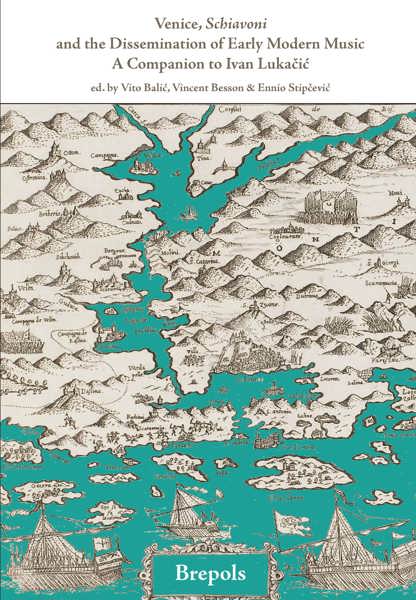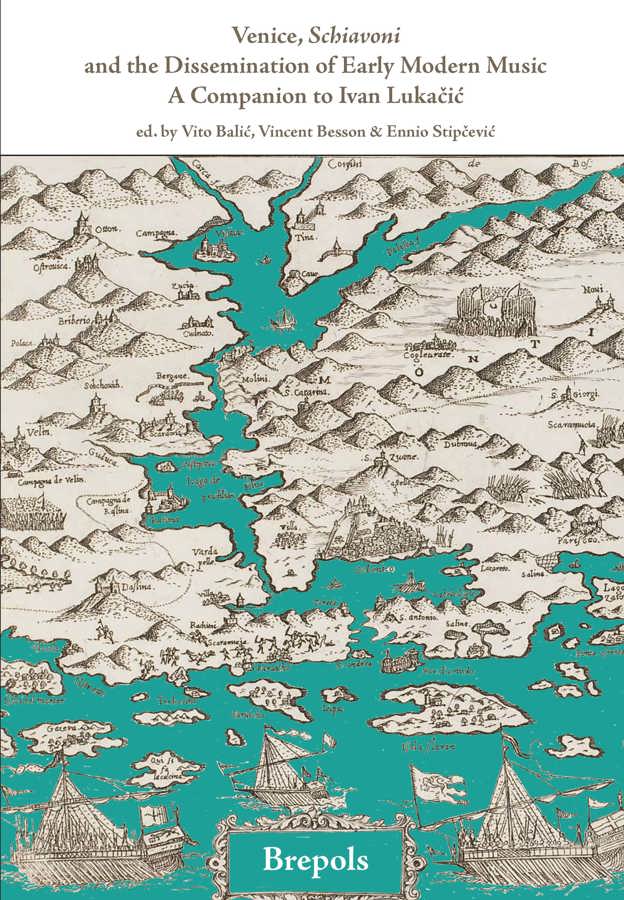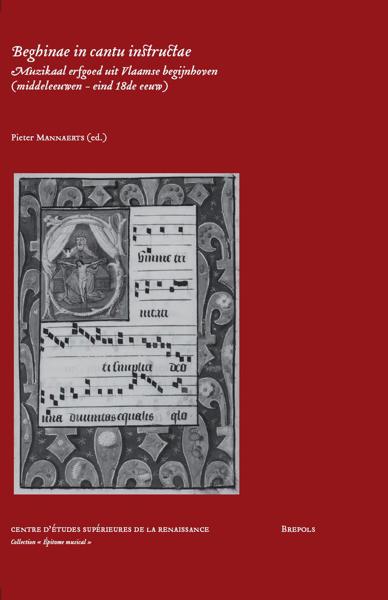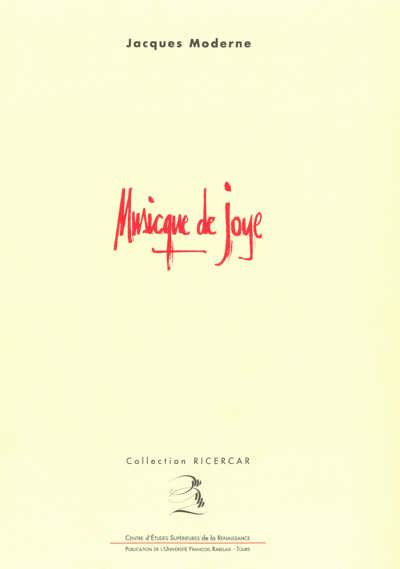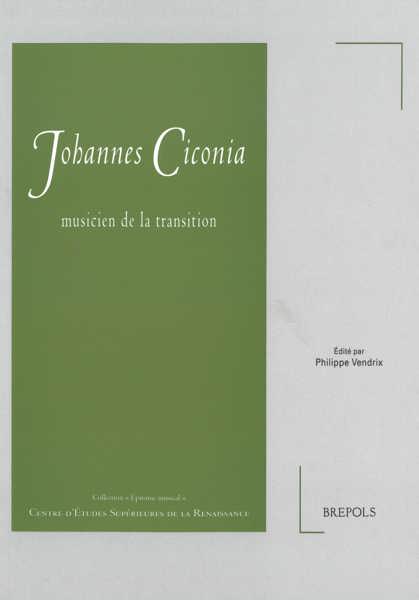
Venice, Schiavoni and the Dissemination of Early Modern Music
A Companion to Ivan Lukačić
Ennio Stipčević, Vito Balić, Vincent Besson (eds)
- Pages: 288 p.
- Size:178 x 254 mm
- Illustrations:28 b/w, 3 col., 19 tables b/w., 1 maps b/w, Music examples: 37
- Language(s):English, Italian
- Publication Year:2022
- € 60,00 EXCL. VAT RETAIL PRICE
- ISBN: 978-2-503-60195-3
- Paperback
- Available
- € 60,00 EXCL. VAT RETAIL PRICE
- ISBN: 978-2-503-60196-0
- E-book
- Available
This volume presents the musical opus of Ivan Lukačić (c. 1585–1648) as well as the music of his contemporaries active in littoral Croatian lands (Istria, Dalmatia, the Republic of Dubrovnik), which, although firmly marked with influences from Italy, still represented a unique synthesis of prima and seconda prattica.
Ennio Stipčević, musicologist, became a researcher at the Institute for the History of Croatian Music at the Croatian Academy of Sciences and Arts in 1984, where he is now a senior scholar. In 1994 he also began teaching at the Zagreb Academy of Music, and spent the academic year 1996-1997 as a Fullbright visiting scholar at Yale University of Music. His publications, focusing mainly on Croatian Renaissance and Baroque music, include monographs on Ivan Lukačić (2007) and Francesco Usper (2008), and over a dozen critical musical editions.
Vito Balić has studied music theory at the Music Academy in Zagreb. Since 2017, he has been employed as the assistant at the Art Academy in Split. He publishes articles on music theory and on Croatian music. In addition, he prepares musical editions. He was the quest editor of the ethnomusicological yearbook of southern Croatia Bašćinski glasi (2013-2019), the editor of the proceedings Music Pedagogy in the Context of Present and Future Changes 4 (2016) and the miscellany Fra Bernardin Sokol (2018).
Vincent Besson is a research engineer in the analysis of historical and cultural sources at the CNRS. He takes part in various research projects in the digital humanities conducted within Ricercar (Early Music Research Lab) of the UMR 7323 of the CNRS. He is a member of the editorial board of the CRIM project and of the complete edition of Tomaso Cecchini’s works. He is managing editor and lead designer of publications in the collection “Epitome musical” and of the international review of musical iconography “Imago musicae”.
Ivan Lukačić (born around 1585, died in 1648), composer, Conventual Franciscan, long-time “maestro di cappella” of the cathedral in Split, is a typical “hero” of local historiography. As early as 1935, the Croatian-American musicologist Dragan Plamenac (real name Karl Siebenschein) prepared a selection from the only known collection of Lukačić’s compositions, the Sacrae cantiones (Venice, 1620). In the same year, Plamenac introduced Croatian Renaissance and Baroque music to the local audience for the first time at a concert held at the Croatian Music Institute. In the aftermath of Plamenac’s emigration to the USA in 1939, it took several decades for new archival, stylistic, interdisciplinary, and international research in Croatian musicology to take place. Despite the availability of earlier material as well as contemporary musical publications of Lukačić’s work (J. Andreis, Zagreb, 1970; E. Stipčević, Padua, 1986), it is not an exaggeration to say that Lukačić still remains unknown internationally. For many years, a number of studies of Lukačić and the music of his contemporaries from the “other, eastern coast of the Adriatic” published almost exclusively in Croatian and thus the international professional public had very limited access to them. This collection of studies dedicated to Lukačić and to the musical and cultural contacts between the two Adriatic coasts is the first volume to be published in both English and Italian. The echoes of the contacts between Italy and Croatia reached the Royal Palace in Portugal, shops selling printed music in Denmark and church archives in Slovenia and Poland. The aim of this book is to follow the traces of that cultural dissemination.
Foreword: Fragments on Lukačić — Ennio Stipčević
Dalmatia in the time of Ivan Lukačić (1587–1648) — Josip Vrandečić
Lukačić’s fellow countrymen in Venice in the past — Lovorka Čoralić
Schiavoni: artists, nation, ideology — Ivana Prijatelj Pavičić
Fra Ivan Marko (Giovanni Marco) Lukačić alla luce della più recente documentazione archivistica — Ljudevit Maračić
Il Collegio Illirico a Roma, Lukačić e la Dalmazia nei documenti veneziani — Paolo Alberto Rismondo
Compositions by Ivan Lukačić in the context of contemporary music anthologies — A view from the perspective of digital musicology — Lucija Konfic
Juraj (Giorgio) Alberti: Dialogo per imparare con brevità à Cantar Canto figurato (Venetia, 1619) — Jelena Knešaurek Carić
New insights into Tomaso Cecchini’s motet production prior to 1620 — Gabriele Taschetti
The Motetti a una, doi, tre et quatro voci (Venezia, 1630) by Antonio Gualtieri: a collection of small-scale motets from the Paduan area — Chiara Comparin
Carlo Farina e il repertorio di danza tedesco d’inizio Seicento — Aurelio Bianco
The influence of Francesco Patrizi’s collection of Greek manuscripts on his music theory — Jacomien Prins
Giovanni Sebenico o Ivan Šibenčanin? Andata e ritorno dalla Serenissima all’Europa — Anna Laura Bellina
Lukačić’s Sacrae cantiones (1620) and historically informed performances in Croatian festivals from 1980s to 2010s — Dario Poljak
The reception of Ivan Lukačić’s motets by Croatian 20th and 21st century composers — Tomislav Bužić
Bibliography
Modern music editions (selection)
Index nominum
